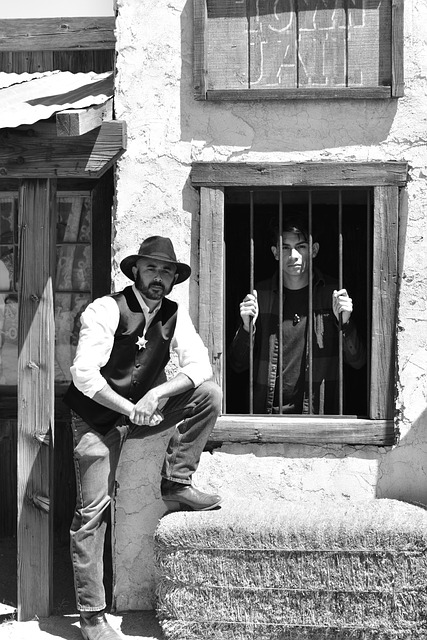Understanding your legal rights during traffic stops, especially in suspected DUI cases, is crucial. Corporate DUI Awareness Workshops educate drivers and law enforcement on these rights, promoting safe interactions and constitutional evidence collection. These workshops highlight the difference between standard traffic stops and DUI checks, emphasizing calmness and awareness to avoid mistakes with long-term consequences. By attending, employees learn their rights, learn to navigate sensitive situations responsibly, and protect themselves and their companies from legal repercussions.
In the realm of traffic law, understanding your rights during a stop is crucial. This article demystifies interactions with law enforcement, focusing on ‘Understanding Your Legal Rights During a Traffic Stop’ and ‘The Difference Between Standard Stops and DUI Checks’. Additionally, it guides readers on ‘What to Do (and Avoid) When Interacted With by Law Enforcement’, emphasizing the significance of Corporate DUI Awareness through workshops for employees. By exploring these sections, folks can ensure they navigate traffic stops with knowledge and confidence.
- Understanding Your Legal Rights During a Traffic Stop
- The Difference Between Standard Stops and DUI Checks
- What to Do (and Avoid) When Interacted With by Law Enforcement
- Corporate DUI Awareness: Training Employees on Their Rights and Responsibilities
Understanding Your Legal Rights During a Traffic Stop

During a traffic stop, it’s crucial to understand and assert your legal rights. In the United States, for instance, drivers have the right to remain silent and refuse to answer questions that might incriminate them. This is especially important if you’re suspected of driving under the influence (DUI) or any other offense. You are also entitled to an attorney during questioning and have the option to request a warrant be obtained before any search of your vehicle or person.
Corporate DUI Awareness Workshops often emphasize these rights to educate both employees and law enforcement on proper procedures. Knowing your legal rights can help de-escalate tense situations, protect you from potential misconduct, and ensure that any evidence collected against you is done so lawfully. Remember, staying calm and informed are key during a traffic stop to avoid mistakes that could impact your future.
The Difference Between Standard Stops and DUI Checks

When encountering law enforcement during a traffic stop, understanding the distinction between standard traffic stops and DUI (Driving Under the Influence) checks is crucial for every driver’s safety and rights. Standard stops are typically conducted for routine violations like speeding or broken tail lights. Officers will approach your vehicle to explain the reason for the stop, and if everything checks out, you’ll be on your way promptly.
In contrast, DUI checks, often set up during corporate DUI Awareness Workshops or special enforcement operations, target drivers who may be impaired. These stops are designed to prevent drunk or drugged driving, and officers use heightened scrutiny and specific criteria to identify potential indicators of intoxication. While these checks prioritize road safety, it’s important for drivers to remain calm and know their rights, ensuring the interaction remains constitutional.
What to Do (and Avoid) When Interacted With by Law Enforcement

When interacting with law enforcement during a traffic stop, it’s crucial to stay calm and remember your rights. First and foremost, avoid any actions or statements that might be misconstrued as resistance. Refrain from arguing or becoming aggressive; instead, politely acknowledge their presence and comply with reasonable requests, such as producing a license and registration.
During these interactions, remain silent if you choose to exercise your right to remain silent. Avoid providing details beyond the basic requirements—name, date of birth, and vehicle information. If you’re concerned about potential misunderstandings or excessive force, consider documenting the stop by memorizing the officer’s badge number and recording key details like time, location, and any unusual behavior from the officer. For instance, corporate DUI awareness workshops often emphasize these points to ensure employees know their rights during such encounters.
Corporate DUI Awareness: Training Employees on Their Rights and Responsibilities

In today’s digital era, it’s crucial for employees to be aware of their rights and responsibilities during traffic stops, especially in cases involving DUI (Driving Under the Influence). Corporate DUI Awareness Workshops play a pivotal role in educating staff on how to navigate these sensitive situations. These workshops not only empower individuals but also protect companies from potential legal repercussions.
By attending such sessions, employees learn about their constitutional rights and the steps they should take if stopped by law enforcement. Moreover, these workshops highlight the company’s commitment to ethical practices and responsible employment, fostering a culture of awareness and accountability among its workforce.
Understanding your rights during a traffic stop is crucial for ensuring fair treatment and avoiding potential legal pitfalls. By knowing the difference between standard stops and DUI checks, you can make informed decisions when interacting with law enforcement. Additionally, corporate DUI awareness workshops play a vital role in educating employees about their rights and responsibilities, fostering a culture of compliance and safety within organizations. Embracing these practices empowers individuals to navigate traffic stops confidently and legally.






